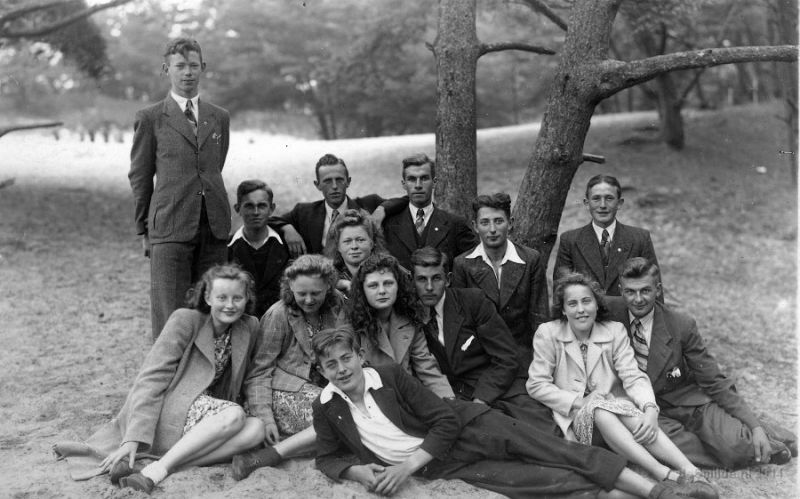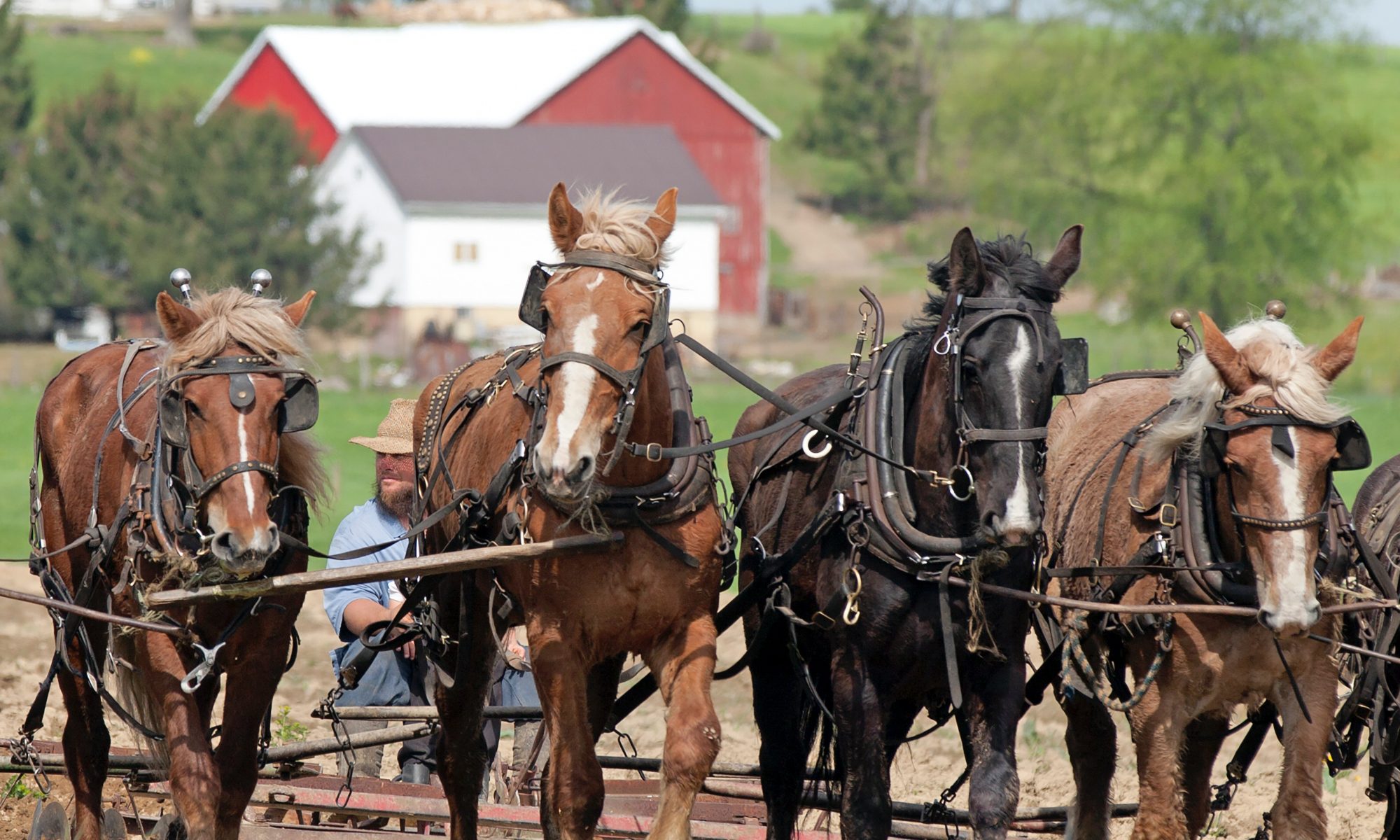Recently, there have been concerns expressed about cheating on tests and International Students. This has been rattling around in my brain for the past couple days. That rattling around and Father’s Day came together for me. What if, for some International Students, this is their two years of farming??
Confused? Let me explain. My parents emigrated from the Netherlands in 1952 along with my two older brothers (they had many girl babies in Canada but that is another story). They went through a pretty strenuous vetting process, three months of ESL classes and had to find a sponsor. The deal was that they would work for this sponsor, a farmer, for two years.

Appelscha Dunes, Netherlands – June 1942. My father, Kees Feyen, is in the back row with his arms on the shoulders of two others. He is 22 years old here, about the age of many of our International Students.
In 1952, my dad was 32 years old and had been farming for at least 25 years (yes, he started young on the farm, don’t all children of farmers?). While my parents were grateful for the sponsorship, my dad was frustrated with this farmer. There wasn’t much, if anything, this farmer could teach him. My dad was already a better farmer. He could care for and handle the horses better, plow straighter and faster, build or repair what was needed. When the two years were up, my parents moved to North Buxton and worked for the Prince family for better pay and better living arrangements.
Those two years of farming were the price my parents had to pay both to the farmer and to the government of Canada for the opportunity to become Canadian citizens and, after the two years were up, for the opportunity to make choices about where to live and where to work and who to work for.
So what does this have to do with International Students? Well, for many of our International Students, a two-year diploma means the opportunity for a two year work visa in Canada. This is their opportunity to find work and, hopefully, begin their process towards emigration. Many of our International Students already have degrees, sometimes in the very fields of study they are enrolled at in our colleges and sometimes in other fields, even more than one field. I have met doctors in the nursing program, dentists in the dental assisting program, engineers in the civil engineer technician program, and previous business owners and accountants in the business program.
Like my dad, there isn’t much, if anything we can teach them, at least not in the same way as domestic students right out of highschool. Many of our programs are set up for helping domestic students learn skills they don’t already have and build a body of knowledge that they can take into their first career. I am suggesting that this may be different for International Students where the body of knowledge they need to learn is customs of Canada and to hone their communication skills, in some cases. By customs, I don’t mean learning to drink lots of Tim Horton’s coffee. I mean to learn the practices, procedures, policies and legalities of their profession within Canadian society. For communication skills, I mean honing speaking and listening skills, as many International students already have strong reading and writing skills, as well as honing social conventions common in Canada. Have we considered this in our programs and courses? Are we giving International students opportunities to learn what they need?
We talk a lot about how a diverse population of students is also good for domestic students for a wide variety of reasons including helping our domestic student be better prepared for a global economy but are we giving our domestic students real opportunities for this learning in our classrooms outside of seating them beside an International student?
I want to be clear about one aspect before I conclude my musings. I am not suggesting that International students much give up their heritage. My parents didn’t. My parents were part of a wave of immigration from the Netherlands after WWII that found a place in Canadian society. They started their own churches, build their own schools including colleges and universities, founded their own companies – they even started a union and a political party. This may have been part of the reason my parents choose Canada over America.
I don’t have any answers yet. I am still at the rattling around in my brain stage. I am not even sure I have the right questions yet. But I do know that the issue of cheating is a complex issue and that we need to do something different that what we are doing. I believe that adding more security and proctors for tests is not the silver bullet solution. Finding the answer will require consideration of International student needs and perspectives. One resources that I found helpful, in spite of the heavy US content, is Recognizing Cultural Variation in the Classroom from Carnegie Mellon. If you have a good resource, I hope you will share it with me.
Happy Father’s Day in heaven, Dad. Thanks for immigrating to Canada so that I could be here today pondering this.
My dad loved plowing with a horse team. Featured image: Photo by Randy Fath on Unsplash


3 Replies to “Two Years of Farming and International Students”